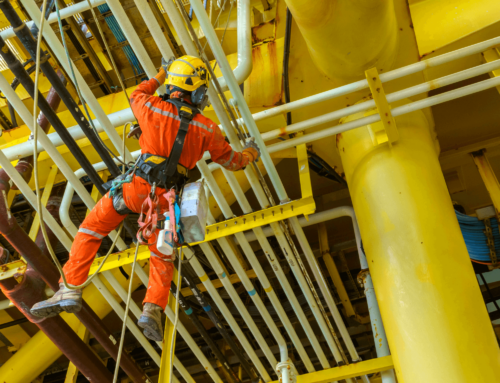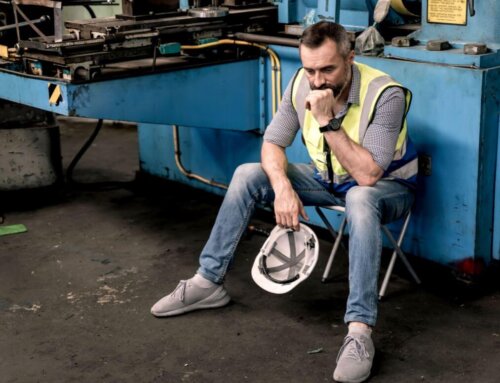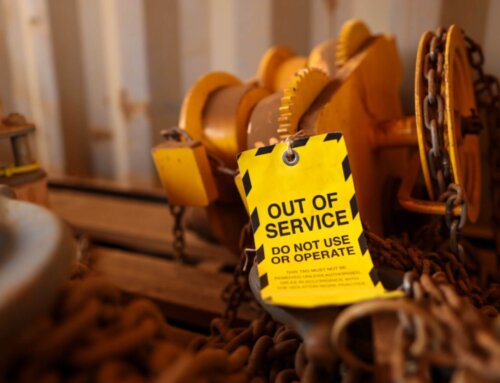If you ever got asked what you thought was the most dangerous type of job you could have, what would your answer be? Working in the building trade, perhaps? You’d certainly be correct in thinking it is right up there as one of the most dangerous occupations. Statistically, though, it’s not the most hazardous.
How about farming? Whilst you ponder that, let’s tell you the answer, anyway.
It is the farming and agriculture industry.
The Health and Safety Executive (HSE) figures for the year 2019/2020 reveal;
- 21 workers died in accidents at work
- Half of the workers killed were over 55 years of age.
- The majority of deaths were from moving vehicle accidents: Combine harvesters, tractors, and utility vehicles.
- Four workers fell to their deaths by falling from a height.
- Two suffered fatal injuries in incidents involving cows.
- Two died in machinery accidents.
- Two were involved in accidents in which they became trapped by something collapsing.
- An estimated 12,000 non-fatal injury farming accidents got reported during the same period. Many farming accidents go unreported.
The farming/ agriculture industry has the worst rate of fatal injuries among its’ employees, per 100,000, of all the major industry sectors. This rate is 18 times higher than the overall average.
Approximately 360,000 people work in agriculture. That is just 1% of the population. However, the industry is responsible for 20% of all fatal accident deaths in the workplace.
Why are there so many farming accidents?
In 2014, James Chapman received an MBE for services to farm safety. In 2005, whilst helping out at a friend’s farm, James was checking out some machinery that was not working correctly. His clothing became entangled in machine parts, and in the melee that followed, he lost his left arm due to traumatic amputation.
Life was hard for James after the accident, and he says that he suffered personal and business difficulties. Having got back onto his feet, he decided to dedicate his time to trying to help improve farm safety in the hope of stopping other farmworkers from getting catastrophic injuries in farming accidents.
He won a scholarship to help him carry out his research, and he travelled the world studying farm safety in other countries.
After completing his studies, James did some interviews with Farmers Guide magazine and i-news and told them that the main problem he’d discovered was farmers tendency to normalise farming risks. He said:
“We (farmers) are proud of our near misses and even boast about them. We risk our lives every day to provide food, and we need to stop glorifying the risks and dangers, (instead) praising those farmers who do a good job when it comes to safety.
We are all guilty of it. When the pressure is on, you work long hours, you take risks, and you’re not thinking straight.”
The NFU (National Farmers Union) has been a driver of trying to change the culture of those who work in the farming industry regarding health and safety issues.
In 2014, the NFU set up the Farm Safety Foundation, a charity dedicated to helping young farmers change their attitudes to farm safety issues. Its longterm aim is to ‘find a way to stop farmers (from) having life-changing accidents and dying at work.’
Led by the Farm Safety Foundation, Farm Safety Week has become a fixture in the farm industry calendar in July every year.
All of these initiatives are starting to have positive effects. Whilst the latest HSE figures look bad (and all farm accident injuries and fatalities are a grave cause for concern), the number of farm work-related ill health cases and fatalities have declined since the previous year. The rate of fatal injuries shows a general downward trend since the early 2000s.
The Farm Safety Foundation’s work has seen it deliver safety training to over 11,000 young farmers in 44 colleges, universities and Young Farmers Clubs throughout the UK.
The message appears to be slowly getting through.
What about older farmworkers attitudes to health and safety?
The specific age of workers is rarely a factor in accidents at work. It is when it comes to farming accidents.
Half of those killed in farming accidents were aged 55 and over. (HSE 2019/2020)
Almost half of those killed in previous years have been over 65 years of age! HSE 2017/2018
One of the problems that the farming industry in the UK faces is that young people are increasingly looking to go and work in towns and cities – not in agriculture. The average age of a farmer in the UK is 59. That tends to be the same for those workers who farmers employ, too.
Jack Fisher’s father, Peter, was an experienced agricultural goods haulier. In 2017, Peter tragically died in an accident that occurred as he took support strapping off bales of hay stacked up on his lorry. Peter was working alone, so his family will never fully know precisely how the accident happened. However, what they do know is, the stack of bales fell on top of Peter.
Jack’s elder brother decided to take over the family business. Jack joined him sometime later. He has become a very active farm safety campaigner. Jack’s father, Peter, was a stickler for doing things strictly by the book, and this rubbed off on his sons.
Jack told the BBC that younger farmers are improving their procedures when it comes to taking safety measures. However, Jack said that the older generation was slow to initiate change. Because they had worked the same way for so long, they’d become stuck in their ways.
That is a significant problem and still to be overcome.
Are the safety initiatives of the NFU, the Farm Safety Foundation and others starting to reduce the numbers of farm accidents?
Farming is hard work. Those who work in the industry are tough, hard-working and dedicated people. It’s an industry sector historically made up of smaller businesses. Working practices get handed down from generation to generation. There is a tendency for farmworkers to continue working into their later years – often way beyond standard retiring ages.
These things are admirable attributes in their own way. They may simultaneously also be the achilles heel for the farming industry, with some of those involved being slow to change their attitudes to health and safety at work.
The younger generation of farmers and farm workers do appear to be driving forward positive changes alongside the pro-active NFU. After the last farm accident statistics were published, NFU deputy president Stuart Roberts said:
“It was encouraging to see the lowest number (of fatalities) on record last year, but there were still 21 people who lost their lives. We all have a responsibility to look out for each other, and highlighting safety issues and helping each other make improvements is the only way we’re going to get this number to zero.”
A worthy aim. Let us all hope that it is capable of being achieved very soon.
Have you or a member of your family been injured in a farm accident?
If so, Mooneerams solicitors would be happy to discuss its circumstances with you. After doing so, If you decide to make an accident at work claim against your employer, we will help you.
We are expert personal injury solicitors and specialise in accident at work claims. In other words, you’ll be in safe hands.
Call us on 029 2199 1927 for an initial discussion with one of our friendly, knowledgeable farm accident lawyers. If you decide you’d like us to start a claim for you, we will happily do so. In most cases, we can offer to take on farm accident claims on a No Win No Fee basis.
If you’d prefer us to call you back, please complete your details on our Contact Us page, and we’ll call you back at your convenience.









